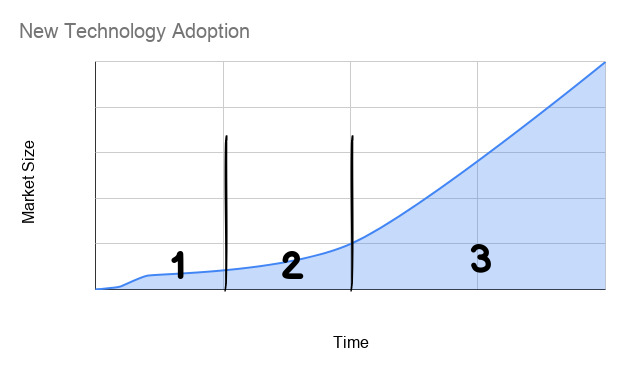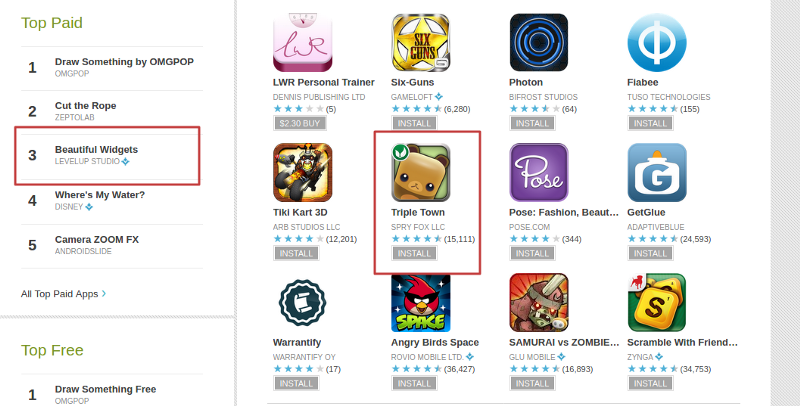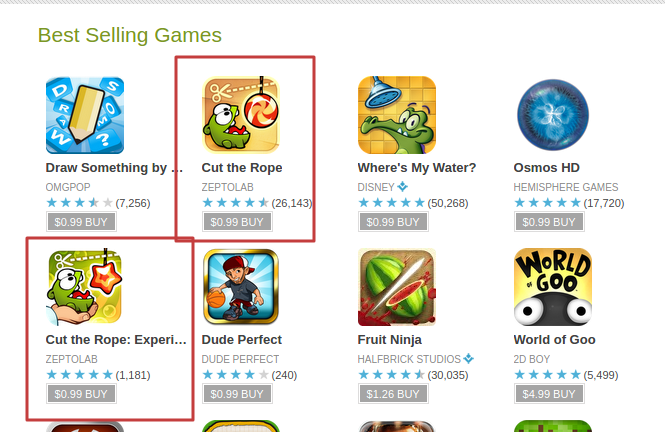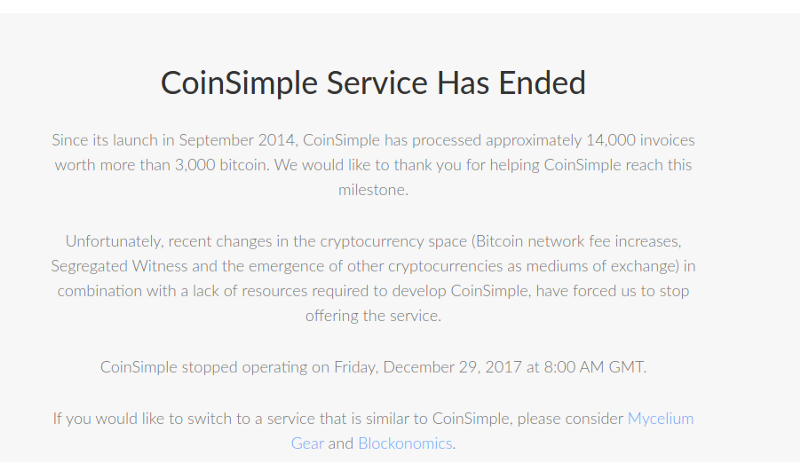Bootstrapped startup ideas for engineers — Building upon innovative technologies early
Jack is a highly skilled software engineer. Over the years, he has built different web applications from ground up that serve thousands of…

Jack is a highly skilled software engineer. Over the years, he has built different web applications from ground up that serve thousands of users. Over the past few years he has been thinking of creating a startup on his own. Yet each time his progress is hindered by the following two obstacles:
- Idea already done — Most of his ideas have been already implemented and there are various startups doing variations on these ideas in niche areas
- High funding requirements — Entering a highly competitive market requires one to build lot of features which in turn requires chasing venture capitalists and accelerators in hope of getting million dollar funding. However, Jack is a first time entrepreneur having no business connections in VC circles/silicon valley and has found this whole process extremely frustrating
I can relate to Jack’s story. Being a first time entrepreneur myself and having zero business knowledge, I spent one year applying to at least 20 accelerators and preparing different pitch decks/five year business plans with no sight of success. Finally I decided that my time is better spend on engineering/product development and talking to customers instead!
Fast forward 4 years, we (Blockonomics) are now a profitable startup with 150,000USD+ annual revenue. We have 7 employees spanning from 4 continents across the world (Read More about our work culture here). During my journey I have observed how some tech startup ideas are more congenial to bootstrapping than others. Sharing some of my thoughts in this post. Hope this helps you Jack!
Catch the Tech Adoption Curve Early
Stage 1 — Nascent Technology
- Probability that startup idea is done— Very Low
- Investment Requirement — Low (Could be high if extensive research activity is involved)
- Risk of technology failure — High
At this stage, the technology is very experimental. For example early stages of HTML where people are still figuring out how to use HTML/CSS to properly render a website. This a good time to experiment several startup ideas. However, since the market is very small, it is difficult to get customers to try out your product and to get real feedback. Also since the technology is so raw, you maybe spend lots of time coding things that are available as open source libraries later.
Stage 2— Upcoming Technology
- Probability that startup idea is done— Low
- Investment Requirement — Low
- Risk of technology failure — Medium
Since the technology is still new, there are various startup opportunities on various categories of tech stack like building infrastructure, payment, marketing, design. Critical mass of early adopters is present and there are communities that will help steer your product into right direction. For example for bitcoin, many early startups relied on bitcointalk forum to get technical advice and validation from a very supportive community. It is common to see many companies building up and learning from mistakes that started in Stage 1.
The strategy is to rely on your software engineering skills to evaluate and back an unproven technology early before it hits the masses.
It is important to be persistent because new technologies will be called scams, useless and impractical by people and experts around you. Eventually when the technology succeeds you will be much ahead of competitors with a substantial market share.
Stage 3— Technology with Mass Adoption
Probability that startup idea is done— High
Investment Requirement — High
Risk of technology failure — Very Low
At this stage, the technology has already matured and is reaching mass adoption. Users are now used to high levels of UI experience with many features. Also large number of companies will be there in a given niche area. This leads to competitive pricing and discount tactics.
You should consider entering in this stage only if you are confident of raising large amounts of capital or have a radically different product that competitors cannot replicate
Let us see some example of such instances in history where bootstrapped startups that discovered new technology early have been highly successful
Android Play Store
Android app store is a great example is of platform that has provided opportunity to numerous developers/small time startups. Let’s have a look at some trending apps in 2010 [two years after android O/S launch]

Beautiful Widgets — It has been made by a small time development firm from Hyderabad, India called LevelUp Studio. Today it has has 1M+ downloads.
TripleTown — Has been made by an independent game developer SpryFox from Seattle, US. It is documented as unfunded . Today it has 5M+ downloads.

Cut the Rope — This game requires no introduction and now has 100M+ download. It was developed by Russian video game developer Zeptolab
ZeptoLab was founded in 2008 by self-taught twins Efim and Semyon Voinov, who have been making games since the age of ten. ZeptoLab has not received any external funding to produce their games
You can find numerous example of calendar, camera, notes, productivity apps which were launched by small time developers in 2010–2012 that went onto to become big and are still successful and running
Unfortunately, now android store has become so overcrowded that there would be already 100+ existing apps for your startup idea and making new apps work require huge funding.
WordPress Plugins
WordPress first appeared in 2003 as a joint effort between Matt Mullenweg and Mike Little. It added plugin support in 2010.
Since then, many tech founders with passion for engineering and design have made it big via developing plugins for the platforms that are used and downloaded by millions of websites. Here are some of the success stories:
- Yoast — Was launched on Wordpress in 2010. It has 5 million+ active installations. It hit $12 million ARR in 2019. This post chronicles the history of Yoast
- WP-Engine — Founded Mar 1, 2020. WP Engine is the most popular managed WordPress hosting company in the market. It powers more than 500,000 websites online today. Last publicly announced annual revenue was over $132 million ARR. The founder Jason Cohen is a great advocate for bootstrapping
- Evanto: Envato’s theme marketplace ThemeForest features more than 11,000 premium WordPress themes by third-party theme authors worldwide. Founded in 2006 and in a garage somewhere in Sydney, the Envato Community hit $400 million in earnings in 2016. Here is a blog documenting the story of Envato.
Blockonomics — How we got into bitcoin early

If you had read about bitcoin in 2014, you get conflicting reports. Much of the mainstream media thinks it is a scam and cannot work. Other media thinks it is the next tech revolution like the Internet.
The only way to know the truth is to find it our yourself. So I took 3 days to read the original whitepaper by satoshi. Though confusing at first, the technology was sound and I was convinced that this technology is there to stay and there is terrific chance to build on top on it. I started building small projects and started looking into the protocol internals like block format, how transactions are serialized/structures for efficient indexing.
By April 2014, I had built a small tool for visualizing bitcoin transactions and was able to index and process large amount of blockchain data to form clusters

However, quite soon I realized there wasn’t much of a market for this and by December 2014 we changed the UI to an address/wallet watcher that gave email notifications. This was also a solution of my own personal difficulties of managing several wallets. We launched on bitcointalk officially in Dec, 2014
We were getting constant feedback of features from the community. We chugged along slowly for next few years as I was doing part time jobs/freelancing to support myself. By 2017, we had 5000 registered users. However, our revenue was still only a few hundred dollars a month. In 2018, we look at the other direct to wallet platforms like coinsimple, mycelium gear, and decided to introduce merchant processing. This helped us get a steady stream of monthly revenue.

Coinsimple has since folded — My analysis is that they were too early to the market (Stage1) and didn’t have funds to slug it out. However, their efforts have helped other companies like us to understand the market. From 2018 winter, we can good number of merchants on platforms and things started taking off and we were able to hire employees. Things have been smooth from then on and we were also able to sponsor WordPress conference in Feb 2020. In summary two important things have helped me through the journey:
- My technical understand of bitcoin protocols and network helped me persist in the belief to continue working. This is despite large price crashes and various legal/functional obstacles in the bitcoin ecosystem.
- We pivoted our product several times learning from customers and other startups in the space until we got the correct product market fit.
Innovate technologies in 2020 — Where are the opportunities?
There are several upcoming platforms that you are start building upon as a software developer. Development on Telegram Bots is really picking up. Doing e-commerce directly on whatsapp/chat is spawning a variety of applications/use cases. Building apps for open source platforms that are gaining traction is also a very good strategy. Mattermost is an open source, self-hosted Slack-alternative that requires app integrations.
Machine learning frameworks like Generative Adversarial Networks (GANs) have been leveraged to create several applications. Engaging on good tech forums like hackernews, reading newsletters helps.
In summary, there are several instances of independent software developers that have bootstrapped their way to success by building upon innovative technology early. Learning from such examples and understanding the tech adoption curve makes the journey from engineering to entrepreneurship easier!


![Top 10 Tools and Resources for Crypto Research [2021]](/content/images/size/w720/max/800/1-kDyyUnRCD656bm2ny-jHag.png)

Comments (0)